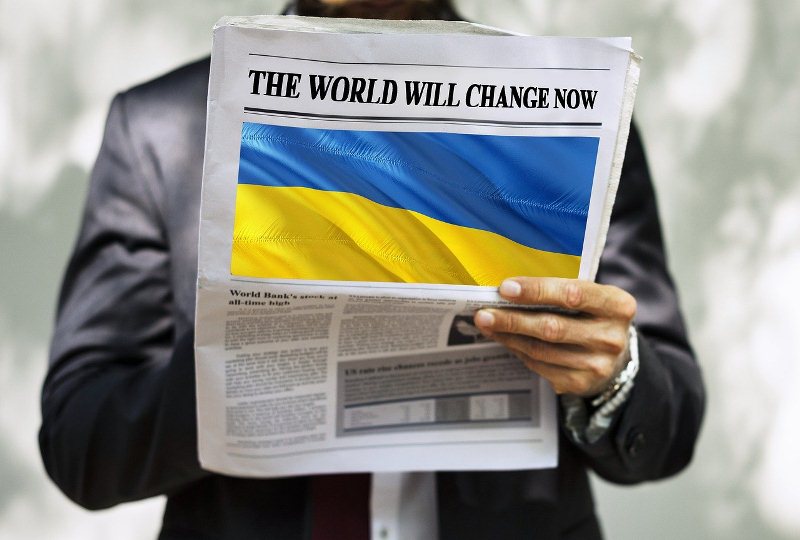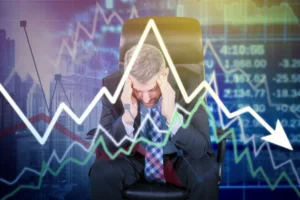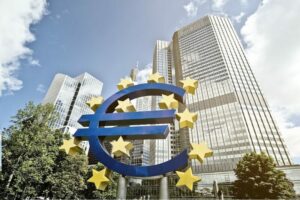Andrew Kenningham (foto), Chief Europe Economist at Capital Economics, explains in an interview with CursdeGuvernare how the war will reset the goals and development strategies the EU had agreed on – not effortlessly – in order to get out of the pandemic and to ensure long-term economic resilience.
- What will be left of the green transition and the national recovery plans given the war?
- How will decision makers solve the problem of inflation and economic slowdown caused by the military conflict?
- How will Europe reduce its dependence on Russian gas and critical raw materials from China?
The Russian invasion of Ukraine has destabilized the European economy, whose growth will inevitably be affected on several levels: rising commodity prices will push inflation up, affecting purchasing power and demand; global supply chains and trade will be disrupted; uncertainties could lead to capital outflows from emerging economies.
Andrew Kenningham is Chief Europe Economist at Capital Economics, an independent London-based research and economic consulting firm. Kenningham previously worked for the British government (Ministry of International Development), but also for Merrill Lynch, where he covered emerging Europe, the Middle East and Africa for eight years.
Summary of ideas:
- Industry is heading for an inevitable recession, but services could save growth
- What is the German recipe for keeping inflation low for a long time?
- European integration will deepen – common debt to grow to support defense spending and energy transition
- Japanese recipe – an example of how energy diversification from Russia might be done
- Germany has outsourced its defense industry to the United States, energy to Russia and its economy to China
- Blocking Russia’s foreign exchange reserves could help the growth of central banks digital currencies
***
CursdeGuvernare:
What impact do you think the war in Ukraine will have on the European economy? Have you updated your forecasts?
Andrew Kenningham:
The discussion among economists and investors and policy makers is really about how bad the negative effects of the conflict will be for the economic activity and whether there’s a significant recession risk on the one hand, and on the other hand the impact on inflation which obviously is going to be substantial. That leaves central banks having to work out whether they respond by keeping policy loose or they tighten relative to what they previously expected.Andrew KenninghamThe discussion among economists and investors and policy makers is really about how bad the negative effects of the conflict will be for the economic activity and whether there’s a significant recession risk on the one hand, and on the other hand the impact on inflation which obviously is going to be substantial. That leaves central banks having to work out whether they respond by keeping policy loose or they tighten relative to what they previously expected.
We have reduced our forecast of GDP for the eurozone by 1 percent over the rest of this year because of the conflict. I think it is quite uncertain at the moment how big the effect will be because we are not sure what will happen to commodity prices. They have been extremely volatile. We are not sure how big the fiscal response will be. Governments are helping households, in some cases companies, deal with the additional cost of energy but those plans are still under discussion so we don’t know how large the fiscal support will be. We also don’t know how large supply chain disruptions will be and that’s the most difficult to get your head around because there’s really not good data, for example how big the problem will be with caladium which is an important ingredient in producing catalytic converters or batteries for electric vehicles. We cannot see who gets caladium from where, how resilient the producers are, whether they source from somewhere else, whether they have inventories and you also don’t know how long the war will continue.
It is exceptionally uncertain and I think Western Europe is likely to avoid recession but that is largely because it is still coming out of the pandemic. The services sector is still recovering and that will lift GDP, a positive which is happening regardless of the conflict. But I think there will be a manufacturing recession, manufacturing output will decline. Manufacturing had already recovered fully from the pandemic so there is no reopening growth in that sector. It’s already back at its normal level and it’s quite badly affected by the higher energy prices and loss of markets and Russia and supply chain issues.
CursdeGuvernare:
In terms of monetary policy, what are your expectations? I understand that raising interest rates does not help contain energy prices.
Andrew Kenningham:
Yes. It doesn’t directly do anything to reduce energy prices, it won’t help in the short term. The reason for raising interest rates is more about concerns that higher prices and higher inflation will become engrained and will become a permanent feature of the economic landscape. People will expect inflation every year and they will ask for wage rises and prices will rise again.
You can’t control the immediate impact but if central banks don’t tighten monetary policy the risk is that inflation becomes embedded and stays higher for longer and that’s a bigger risk in Central Europe.
I’m not sure about Romania, but it is a much bigger risk in Poland than Germany. The relationship between inflation and unemployment is stronger, the Phillips Curve.
All of central Europe was growing very quickly and it hasn’t got the very strong labour market institutions that are in Germany, particularly, which keep wage pressures very low even when there is inflation. They have decades of experience with that.
CursdeGuvernare:
Because of the powerful syndicates?
Andrew Kenningham:
Yes, it’s not just about how powerful they are. In the UK and the US, trade unions, in the past, were very powerful and tended to push for wage growth above anything else. In Germany their tradition developed in the post-war period, where trade unions were more moderate in their wage demands and they reached agreements with the managers where, for example, they would have wage increases that were linked to the profitability of the company and productivity gains. They have workers on the councils of big companies, it’s a more cooperative approach, less conflict between worker and employer.
If you go back to the ’90 and ’80, inflation was not as big in Germany as in the UK or the US and it is widely thought to be because of the more moderate demands of trade unions. I think that reflected the wider features of the German political landscape. After the war there was a desire to avoid conflict. People tended to be more pragmatic and find ways to reach agreement and avoid conflicts and long strife. They also tend to have two-year wage agreements and often if you look at the details they might have a 2-3 wage agreement in which they get a one-off payment if the company is still profitable or if it achieves certain benchmarks. If you have a 5-10% wage increase that’s there forever it’s more inflationary than a 4% wage increase agreement with a 2% bonus because we made more profit. That’s the German tradition and it helped keep inflation low for a very long time.
CursdeGuvernare:
How will the war affect European plans for the medium term, plans made in the wake of the pandemic: Green Deal, NextGenerationEU, recovery plans and so on? Is there going to be a big reset?
Andrew Kenningham:
I think most of the consequences of this war will reinforce the case for integration within the EU and potentially for more rather than less European common spending, and European projects. One is defence, a really massive change in Germany’s position regarding defence spending. They are going to aim at 2% of GDP and other countries are likely to follow. We will see a lot more defence spending. Part of that will be done at European level or it will be coordinated at European level.
The second thing is the green transition that has become even more urgent because of the desire to reduce dependence on Russian energy. More money will be going into renewables.
Then there is the question of refugees. There will be a lot of pressure for European support on that level as well. A bit early to know. Maybe if the conflict ends soon, people will return to Ukraine and the cost will not be so big. If it continues we might see more European joint spending and possible joint borrowing. That was a big innovation with NextGeneration funds.
President Macron is proposing more joint borrowing, Draghi is in favour. Many countries support more joint spending.
CursdeGuvernare:
Now that borrowing costs are on the rise, won’t the frugal states have more arguments to advocate against further EU joint burrowing?
Andrew Kenningham:
We will see. The key country is Germany. At the moment they say they don’t want more joint borrowing but that might change. If there are more atrocities in the Ukraine, if there are more protests in the streets of Germany or if there is very strong pressure from other European governments, Germany could change its positions. The other frugal states would be likely to fall in line with Germany.
The Netherlands is less frugal because the coalition is changed and the finance minister is from a very pro-european party. It is not impossible to see further progress on this.
CursdeGuvernare:
Coming back to reducing the energy dependency from Russia. Is it possible? We depend on Russia even in the coal sector, not only natural gas and oil. Is it feasible?
Andrew Kenningham:
I think it’s possible. It’s feasible to diversify away from Russian energy. It’s much easier to do with coal and gas because you can ship coal and oil around the world so you can buy it from somewhere else. There is a question of the price you will have to pay but there will not be a shortage in Europe if they are willing to pay the price.
For gas there is a questions of literally potentially falling short of supply because you can’t pipe gas quickly from another location so you would have to get if from liquified natural gas (LNG) which you can have delivered by ship but then you need to regasify, you need capacity at the terminal and then you need to convert it back into proper gas and that requires some infrastructure which is not yet in place. There is some in place, but it is not sufficient.
The biggest pinch point is about gas. They could do without gas. There would be a cost but it wouldn’t be as big as you might expect. We’ve seen that in countries that had rationing of electricity, the economy doesn’t suffer as much as you might think. Japan for example, after Fukushima earthquake in 2012, they had to cut their electricity use by 10% or so and there war really very little impact on total economic activity because they managed to make a lot of savings by asking companies to work through the night or change their shifts in order to use electricity when it was available from renewables and they also asked people to turn off their light at night. That was a short period, only a few months but had some permanent savings in terms of energy efficiency. We waste a lot of energy.
There’s been a lot of debate on how much damage it would do. Bruegel estimates you can replace a lot of the gas and other sources of electricity, you can keep the nuclear power stations working a bit longer in Germany, you can use coal, and get a bit more gas from North Africa. They reckon Germany could get by with very little or no Russian gas with little hit to its economy.
The lights won’t go out but there are some countries more dependent.
CursdeGuvernare:
In its energy ambitions, Europe is also dependent on China. Many materials coming from China are key components for making batteries, wind mills and so on. How do you see this problem? Is Europe trading one dependency, Russia, for another, China?
Andrew Kenningham:
That’s definitely a problem. I like the idea somebody said: Germany outsourced its defence to the US, their energy to Russia and their economy to China. They are gonna have trouble with all of them now. You’ve got Trump, the Putin war, and potential difficulties with China. It’s definitely a concern.
At the moment there’s mutual dependence. Both sides need each other. I don’t think a sudden unraveling of economic ties with China is likely though I would never have expected Putin to invade Ukraine the way he did so you can’t rule out something totally unexpected.
If China were to invade Taiwan, and a lot of clients asked us about that, there could be some similarities in the way the West might respond to something like this. We are not expecting that to happen.
Outside of that I think there is a growing decoupling between the West, US, Europe and China with economies having to choose to some extent which sphere they are in and where their supply chains are linked. We will probably see more decoupling between those regions but it might be gradual.
CursdeGuvernare:
How do you view the decision to block the assets of the central bank of Russia?
Andrew Kenningham:
It is unprecedented to do it to a country of substantial size and which still has close links to the West. It has been done before to Iran and North Korea but they had already massive sanctions in place so it wasn’t so effective.
It must change the calculus for whoever manages the reserves of the Bank of China. You get this overexcited talk about the end of the dollar and people are going to put their money into gold and crypto… I mean there is not really an option to do that. The People’s Bank of China I think has 4 trillion in reserves, you can’t realistically put that into Bitcoin but you might try to diversify to some extent.
It may have some unpredictable consequences for the growth of central banks digital currencies, or central banks outside the West keeping their rezerves with each other rather than the Fed.











